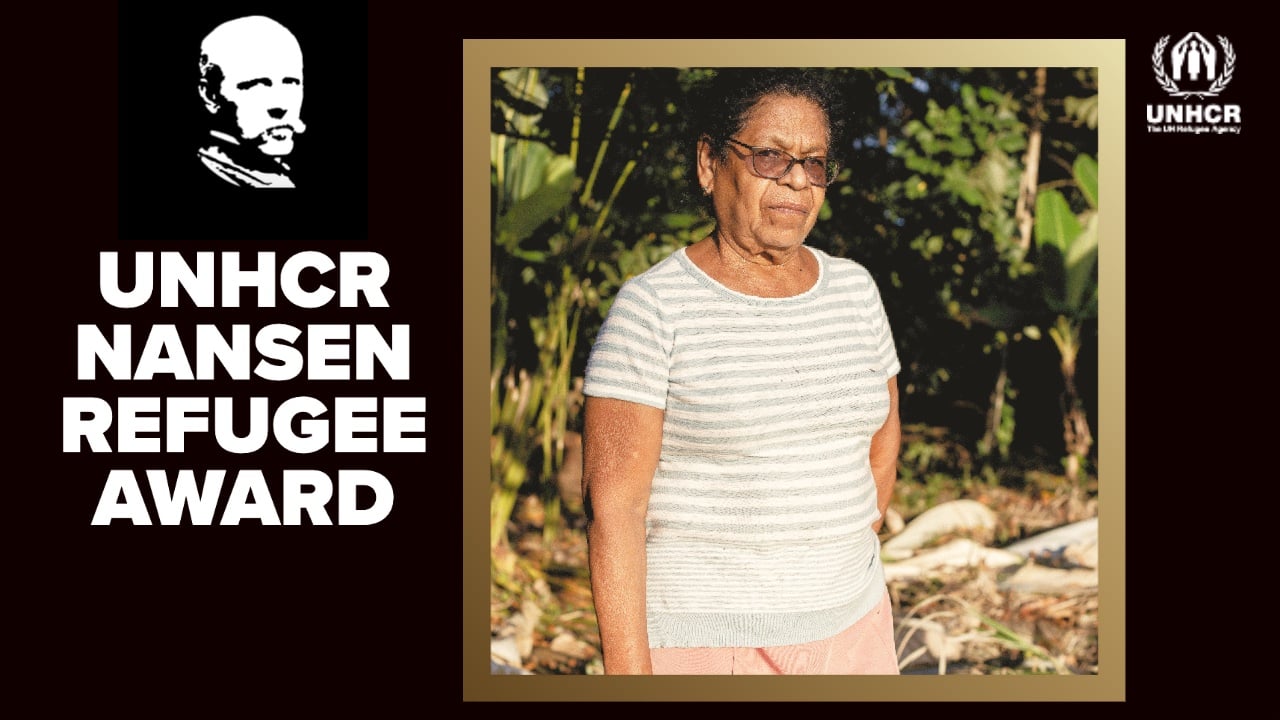16 Days of Activism: Couples in the Congo stand up to the stigma of rape
16 Days of Activism: Couples in the Congo stand up to the stigma of rape

KAVUMU, Democratic Republic of the Congo, November 30 (UNHCR) - Rape is widespread in eastern areas of the Democratic Republic of the Congo, but for many of the female victims, what comes after is often worse than the act itself.
Aside from the trauma and other health problems, the victims are rejected by their husbands and families, seen as dangerously defiled and somehow responsible for what happened to them. Many of them are forcibly displaced in the volatile east, adding trauma on trauma, horror on horror.
"I could not live with someone who was raped by the Interahamwe," said 29-year-old Simon,* whose wife Angelique* was raped almost four years ago by a group of men from the mainly ethnic Hutu militia while returning home from a market in South Kivu province. He was more concerned about being infected with HIV, than worried for the welfare of his 35-year-old wife.
Jean-Paul,* aged 50, was more conflicted after his 49-year-old wife Sylvie* was raped while he was forced to watch. "I was stressed, traumatized. It was not like before. There was another smell in the house," he said. He decided to walk out of the family home, explaining to UNHCR that "I could not have sex with a woman who was raped." He found it very difficult to talk about the ordeal.
There are similar stories in countless villages across the east. In a small number of cases, however, couples are coming back together with the help of a project run by a local humanitarian aid group known by its French acronym of CAMPS (Psycho-Social and Medical Assistance Centre). The small agency is supported by UNHCR, which works to prevent sexual and gender-based violence in eastern Congo and to help the victims, whether or not they are forcibly displaced.
Simon and Angelique, and Jean-Paul and Sylvie are among those who have resumed life as husband and wife with the help of CAMPS. But reconciliation is a complex, difficult and slow process - and virtually impossible if the woman tests positive for HIV or becomes pregnant.
Angelique was with 15 other women returning from selling their garden produce in a nearby town when they were attacked. She felt such shame after being raped that she spent a week roaming the forest before returning home.
"I did not tell my husband. I went to bed, I was sick, I did not speak and I did not eat," Angelique said, hot tears coursing down her face. Simon eventually found out, but instead of showing sympathy, the mother of four said, "He took all my stuff and threw me out of our house. He told me that I was sick, that I had HIV." She sought shelter with her family, but Angelique's father and children were as cold as her husband. "I wondered where I could find poison to kill myself," she revealed. Only her mother relented and offered her a place to stay.
This was a typical case for CAMPS, whose staff investigate rape cases and then reach out to men who have spurned their wives, trying to make them see their spouses as victims. And their work is paying off: Of 800 couples counselled since January this year, 400 were reconciled.
Simon had been separated from Angelique for about three years when he got the call, but he was not interested. "I was at home, I saw people coming. It was CAMPS. They wanted to talk to me about my wife and I told them that she should go and live with her man in the forest," he recalled.
But, despite his bitterness and harsh reaction, he did attend the CAMPS counselling sessions and began to change his mind after listening to their staff and talking to other husbands who had accepted the return of raped wives. He says now that he knows his wife was not guilty of anything. Angelique is still haunted by the attack, crying throughout the interview. "I am often sick. If a person runs behind me, I also start running."
Simon and Angelique have been back together for eight months and they say they live in harmony. But some things have changed. "I forbid her from selling goods at the market. She should stay home," Simon said. But Angelique's trips to the market were a vital income earner and the family are struggling to get by.
Jean-Paul's decision to take back his wife was also affected by the example of his peers. "There were other men who returned to their wives and it helped me," he said. But, as with Simon, the clincher was when he discovered that his wife had tested negative for HIV.
Bagalwa Dieudonné, a veteran counsellor for CAMPS, says it is rare for a couple to reconcile when the wife is living with HIV. He cited one case where love did seem to conquer all, but noted: "They don't have sex anymore." In the patriarchal society men still refuse to wear condoms. Half the battle is in changing attitudes.
By Céline Schmitt in Kavumu, Democratic Republic of the Congo








